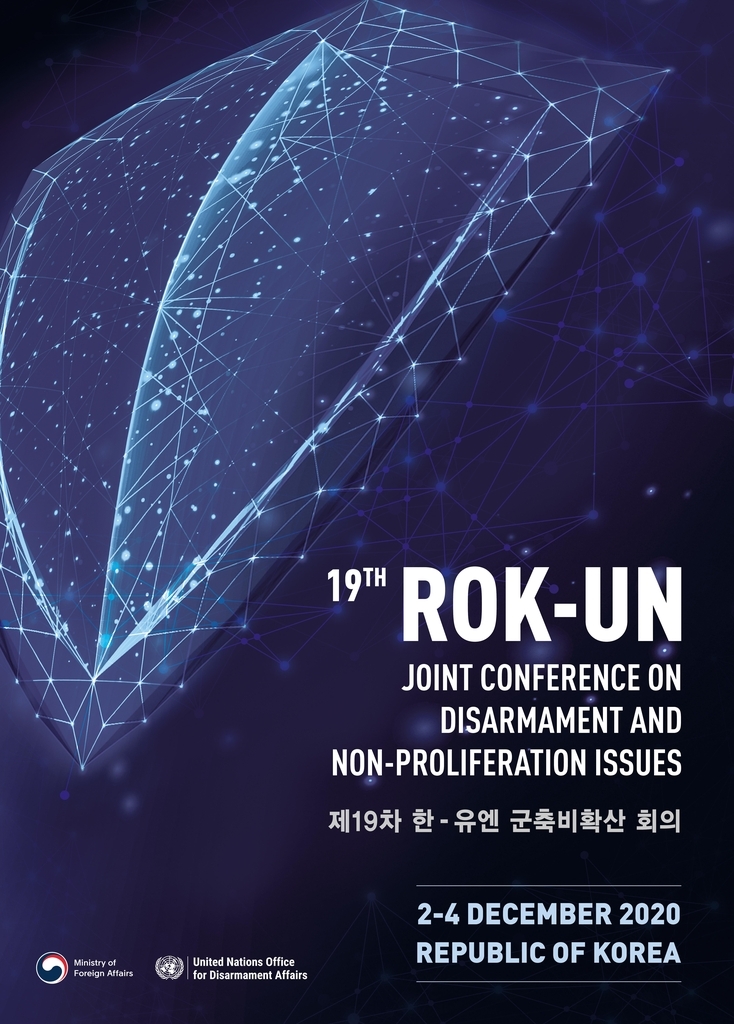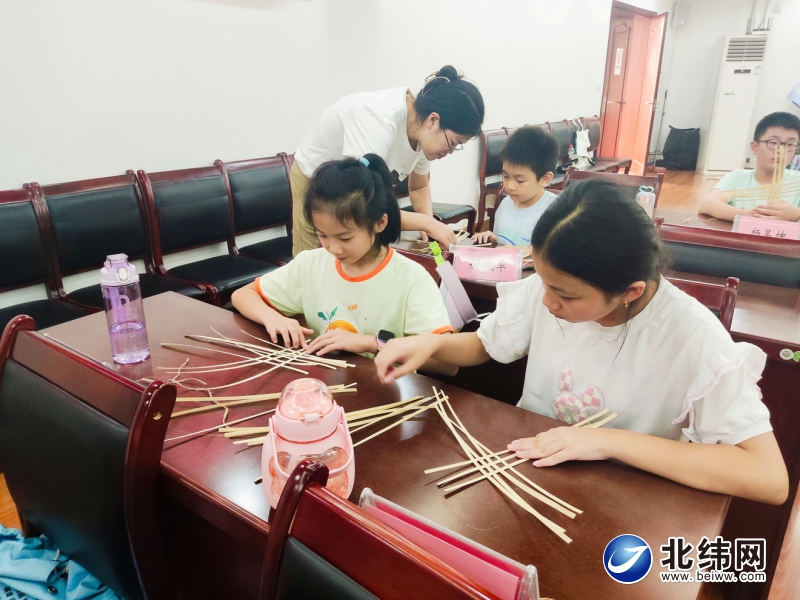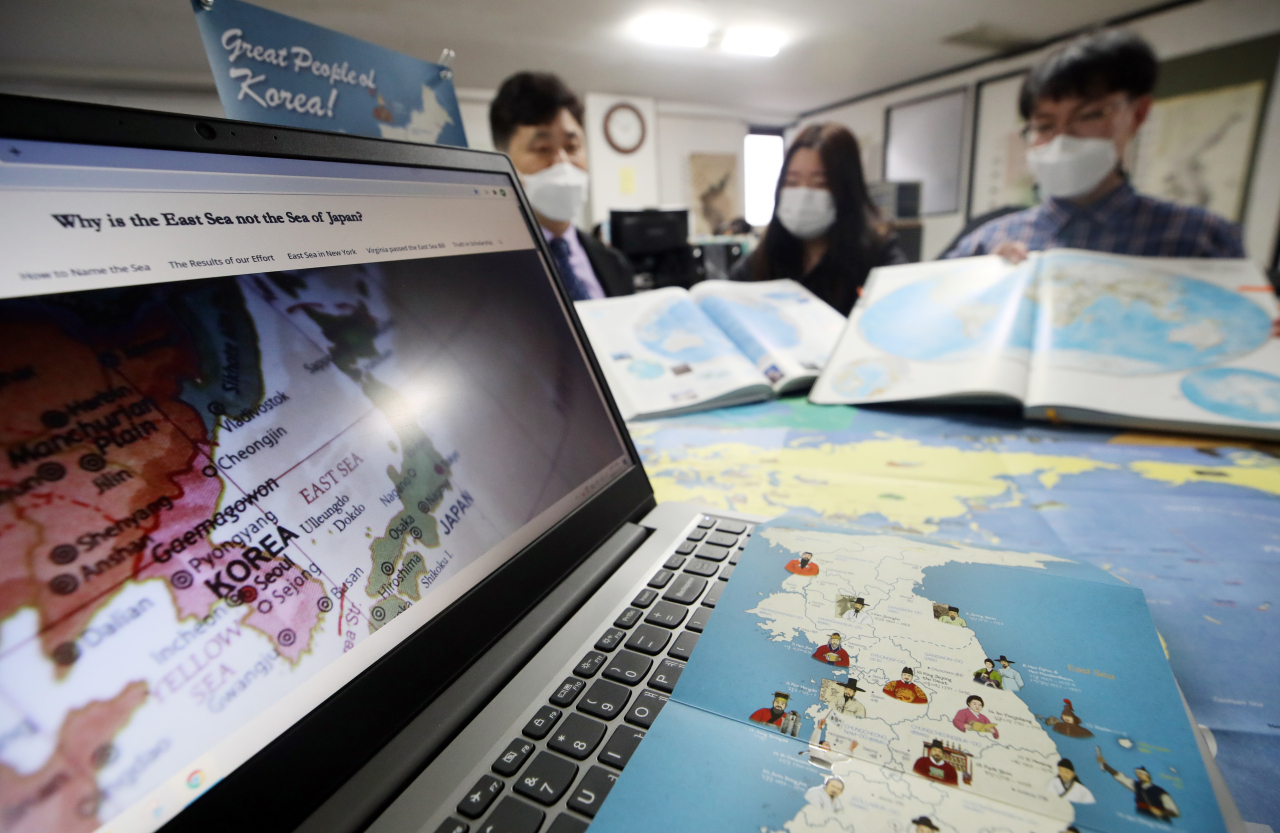Read an exclusive excerpt of Jeff Zentner's upcoming 'Goodbye Days'
Grief is messy, painful, and somehow both universal and incredibly personal.
SEE ALSO:The best YA books of 2016Jeff Zentner's upcoming YA novel Goodbye Daystackles an extreme and tragic case of grieving with empathy, honesty, and heart.
The follow-up to his acclaimed debut novel The Serpent King, Goodbye Daysis the story of teenage Carver Briggs, whose three best friends have all tragically been killed in a car accident. Carver blames himself for their deaths, as he was texting them at the time. As he is faced with his grief and guilt, Carver is also asked by the families of his friends to participate in "goodbye days," to share their memories and say a proper farewell.
Mashreads spoke with Zentner about the challenges of writing about loss.
What sparked the idea for this book?
First of all, The Serpent Kingdeals a little bit with this kind of subject matter, with issues of grief and things like that, but I didn’t really get to explore that emotional territory as fully as I wanted to. After I got done with The Serpent King … the itch was sort of there to explore this sort of thing.
And also I think a lot about death. Not in a creepy morbid way, just in the finality of it. The sense that every one of us are walking around with a ticking clock attached to us, and we have no idea when that clock is gonna run out. And so it’s all about creating as much love as you can while the clock is running, and seeing as much beauty and doing as much things you want to do.
You’re writing about teenagers dealing with these issues, and generally writing for teenagers. What are the challenges and the responsibility in that?
I think the responsibility is the same as it always is when writing for teenagers, which is to be honest. Because teens can really see through dishonesty very quickly, and you can lose your trust very quickly.
I think the challenge is, a lot of times we think about lives as a compendium of accomplishments: "He graduated high school and went to college, got a job and had children, bought a house and retired to Miami." How to find the value you find in a life separate from accomplishments, when there’s no objective measure of a life, how do you measure the value of that life, I think is the challenge.
And also the challenge here was my main character’s culpability in it all. And to write it so that he is both able to grieve and to contend with his guilt. He’s got two really different things going on, and they’re working in conjunction with each other.
What was it like delving so deeply into grief?
I had to really do a lot of research on grieving. I’ve been really fortunate in my life, I’ve never had a situation like Carver in the book, where I lost friends like that. I’ve lost family members, grandparents, that sort of thing, but I’ve never had a close friend die. And it’s really terrifying to me, because I know how much it would hurt me and how much I would grieve over it.
So it was really an exercise in imagination and empathy, and really going inside myself, to take myself to dark places where I’d never been forced to go. But I kind of had to willingly go to those places. I would read books like Blue Nightsby Joan Didion and The Year of Magical Thinkingby Joan Didion, books about grieving. I learned a lot from those books, like about the kind of strange counter-intuitive responses we have to losing a loved one. Like, Joan Didion talks about not wanting to throw out her husband’s shoes in case he comes back and needs them. That’s not going to happen, but she’s indulging that magical thinking. I could not rely on my own personal experience for it. I really just had to imagine it and put myself in the shoes of my characters.
Goodbye Dayshits shelves March 7th. Read on for an exclusive excerpt:
Chapter One
Depending on who—sorry, whom—you ask, I may have killed my three best friends.
If you ask Blake Lloyd’s grandma, Nana Betsy, I think she’d say no. That’s because when she first saw me earlier today, she grabbed me in a huge, tearful hug and whispered in my ear: “You are not responsible for this, Carver Briggs. God knows it and so do I.” And Nana Betsy tends to say what she thinks. So there’s that.
If you ask Eli Bauer’s parents, Dr. Pierce Bauer and Dr. Melissa Rubin-Bauer, I expect they’d say maybe. When I saw them today, they each looked me in the eyes and shook my hand. In their faces, I saw more bereavement than anger. I sensed their desolation in the weakness of their handshakes. And I’m guessing part of their fatigue was over whether to hold me accountable in some way for their loss. So they go down as a maybe. Their daughter, Adair? Eli’s twin? We used to be friends. Not like Eli and I were, but friends. I’d say she’s a “definitely” from the way she glowers at me as if she wishes I’d been in the car too. She was doing just that a few minutes ago, while talking with some of our classmates attending the funeral.
Then there’s Judge Frederick Edwards and his ex-wife, Cynthia Edwards. If you ask them if I killed their son, Thur- good Marshall “Mars” Edwards, I expect you’d hear a firm “probably.” When I saw Judge Edwards today, he towered over me, immaculately dressed as always. Neither of us spoke for a while. The air between us felt hard and rough as stone. “It’s good to see you, sir,” I said finally, and extended my sweating hand.
“None of this is good,” he said in his kingly voice, jaw muscles clenching, looking above me. Beyond me. As though he thought if he could persuade himself of my insignificance, he could persuade himself that I had nothing to do with his son’s death. He shook my hand like it was both his duty and his only way of hurting me.
Then there’s me. I would tell you that I definitely killed my three best friends.
Not on purpose. I’m pretty sure no one thinks I did it on purpose; that I slipped under their car in the dead of night and severed the brake lines. No, here’s the cruel irony for the writer I am: I wrote them out of existence. Whereareyouguys?Textmeback.Not a particularly good or creative text message. But they found Mars’s phone (Mars was driving) with a half-composed text responding to me, just as I requested. It looks like that was what he was working on when he slammed into the rear of a stopped semi on the highway at almost seventy miles per hour. The car went under the trailer, shearing off the top.
I would tell you that I definitely killed my three best friends.
Am I certain that it was my text message that set into motion the chain of events that culminated in my friends’ deaths? No. But I’m sure enough.
I’m numb. Blank. Not yet in the throes of the blazing, ringing pain I’m certain waits for me in the unrolling days ahead. It’s like once when I was chopping onions to help my mom in the kitchen. The knife slipped and I sliced open my hand. There was this pause in my brain as if my body needed to figure out it had been cut. I knew two things right then: (1) I felt only a quick strike and a dull throbbing. But the pain was coming. Oh, was it coming. And (2) I knew that in a second or two, I was about to start raining blood all over my mom’s favorite bamboo cutting board (yes, people can form deep emotional attachments to cutting boards; no, I don’t get it so don’t ask).
So I sit at Blake Lloyd’s funeral and wait for the pain. I wait to start bleeding all over everything.
Chapter Two
I’m a seventeen-year-old funeral expert.
The plan was we’d finish our senior year of high school at Nashville Arts Academy. Then Eli would be off to Berklee College of Music to study guitar. Blake to Los Angeles to pursue comedy and screenwriting. Mars hadn’t figured out where he was going. But he knew whathe would be doing: comic-book illustration. And I’d be heading to Sewanee or Emory for creative writing.
This was notthe plan: for me to be waiting for the funeral of the third member of Sauce Crew to begin. Yesterday was Mars’s funeral. Eli’s the day before.
Blake’s funeral is at his small, white Baptist church—one of about 37,567 small, white Baptist churches in the greater Nashville area. It reeks of graham crackers, glue, and old carpet. There are crayon-drawn pictures of Jesus, resembling a bearded lollipop, handing out blue and green fishes to a multitude of stick figures. The air-conditioning doesn’t work well in the early-August heat and I’m sweating in a navy- blue suit my sister, Georgia, helped me pick out. Or rather, Georgia picked it out herself while I stood there, dazed. I came out of my stupor briefly to express that I thought I was supposed to get a black suit. Georgia gently explained that navy was fine and I could wear it after the funeral. She always forgot to say funerals.Or maybe she didn’t forget.
I sit in the back of the church, forehead resting on the pew in front of me. I watch the tip of my tie sway to and fro and wonder how humans got to a place where we said, “Whoa. Hold on. Before I can take you seriously, you need to hang a brightly colored strip of narrow pointy cloth around your neck.” The carpet is blue and flecked with white. I wonder who designs carpet. Whose life’s calling this is. Who says, “No! No! It’s not right yet! It needs . . . specks of white! And then my masterpiece is complete!” I mull over this stuff because the world’s reliable absurdity is one of the few things that can distract me, and I welcome distractions right now.
My forehead aches from resting on the hard, smooth wood. I hope I appear to be praying. That seems a church/ funeral-appropriate thing to be doing. Plus it saves me from having to make small talk (which I despise under the best of circumstances) with the people making a hushed, sorrowful buzz around me, a swarm of mourning locusts. Isn’titterrible....Whataloss....Hewassoyoung....Hewassofunny....Hewas...Hewas...Hewas. People take shelter under clichés. Language is powerless enough in the face of death. I guess it’s asking too much for people to veer from the tried-and-true under such circumstances.
Language is powerless enough in the face of death.
There’s a huge crowd. Blake’s extended family from East Tennessee. People from Blake’s church. Friends of Nana Betsy’s from work. A bunch of our classmates from Nashville Arts. I’m friendly with most of them, if not friends. A few come by and quickly express sympathies before moving on, but they mostly leave me alone and I’m grateful. That is, I’m grateful if they’re leaving me alone for compassion’s sake and not because Adair has already persuaded them that I’m a killer.
There’s a rustle beside me, the cushion of the pew depressing, a warmth, and then the sunlit perfume of honeysuckle. If any smell stands in defiance of death, it’s honeysuckle.
“Hey, Carver.”
I look up. It’s Jesmyn Holder, Eli’s girlfriend. Ex-girlfriend? They never broke up. They’d been dating for maybe two months. She has dark circles under her eyes. She wears her grief like dust on her face.
“Hey, Jesmyn.”
“Can I sit here?”
“Sure.” Gladthere’satleastonefutureclassmateAdairhasn’tgottentoyet.
“I guess I’m already sitting here.”
“I heard someone say once that it’s easier to ask forgiveness than permission.”
“You here alone?” Jesmyn asks. “You were at the other two with a girl.”
“That was my sister, Georgia. She had to work today. Sorry we didn’t really talk at the other two funerals.”
“I wasn’t in a chatty mood.”
“Me neither.” I tug at my collar. “Is it super hot in here?” In general, I’d rather be bitten on the nuts by a Komodo dragon than make small talk. But sometimes you do what you have to do.
“Yeah, but my Filipino genes are fine with it,” Jesmyn says.
We sit quietly for a moment while she surveys the crowd. “I recognize a lot of these people from the other two.”
I lift my head slightly. “Some go to NAA. You still planning on going?”
“Of course. You didn’t think I was going there because of Eli, did you?”
“No. I mean, I don’t know. No.”
“Two girls from NAA got into Juilliard’s piano program last year. That’s a huge percentage. That’s why I decided to go even before I met Eli.”
“I’m glad you’re coming still. I didn’t mean anything.”
“It’s cool. Anyway, this seems like a weird thing to talk about right now.”
“Everything seems weird to talk about right now.”
“Yeah.”
At the front of the room, Nana Betsy shambles, weeping, toward Blake’s cedar casket to run her hand along its smoothness once more before the funeral starts. I did that before sitting down. The smell of the cedar. Sharp and clean. It didn’t smell like something that should be buried under the dirt. It was closed. You don’t let people see how someone looks after something like the Accident. So perched atop the casket lid on a wooden stand there’s a photo of Blake. He purposely made it ridiculous. It’s a department-store portrait; Olan Mills or Sears studio or something. He’s wearing a thrift-store sweater from the 1980s and pleated khaki pants. He’s holding a huge, grouchy-looking Persian cat. He didn’t own a cat. He literally borrowed one for the photo. Pure Blake. A genuine and radiant grin covers his round face. His eyes are closed as if he blinked. He thought photos where people were blinking were hilarious.
I couldn’t help but smile when I saw it. Even under the circumstances. All Blake had to do was walk into a room and I started preemptively laughing.
“How come you’re not here with your parents?” Jesmyn asks, drawing me out of my memory.
“They’re in Italy for their twenty-fifth anniversary. They tried to come home, but they had trouble getting tickets and my dad had to deal with a lost passport. They’re coming home tomorrow.”
“That sucks.” “Why aren’t you sitting with Eli’s parents?”
Jesmyn crosses her legs and picks a piece of lint off her black dress. “I was. But Adair was giving me a supercrusty vibe. And then I saw you sitting here looking really lonely.”
“Maybe this is how I always look.”
She brushes a lock of her reddish-black hair from her face. I smell her shampoo. “Imagine my embarrassment if I came over here to show you kindness and you didn’t need it.”
“Adair won’t be happy with you showing me kindness.”
“Yeah, well. I guess life is about risk.”
I rub my eyes. My exhaustion is beginning to set in. I haven’t slept more than a few hours in the last three days. I turn to Jesmyn. “Have you talked to Eli’s parents or Adair much since the accident?” I realize, even as I ask, that I have no idea where Jesmyn herself stands on the whole blame thing. Lack of sleep has lowered my inhibitions such that I’m asking questions that might lead to answers I’m unready to hear.
She opens her mouth to answer when the service begins. We bow our heads as Blake’s pastor prays and then offers words of comfort from the gospels. It reminds me more of Mars’s huge funeral at New Bethel AME Church than Eli’s small private service at Connelly Brothers’ Funeral Home. Eli’s parents are atheists, and it was the first funeral I’d ever been to that didn’t once mention God. Seventeen years old and the breadth of my funerary experience probably rivals that of people twice my age.
Six members of Nashville Arts’s a cappella choir perform a requiem. They did this at Mars’s and Eli’s funerals too. Tears streak Jesmyn’s face like an atlas of rivers. She holds a wadded-up tissue and dabs her eyes and nose, staring straight ahead. I don’t understand why I’m not crying. I should be. Maybe it’s like how it’s sometimes too cold to snow.
One of Blake’s uncles reads First Thessalonians 4:14–17 in his thick East Tennessee accent. His large hands tremble. His voice wavers. ForwebelievethatJesusdiedandroseagain,andsowebelievethatGodwillbringwithJesusthosewhohavefallenasleep inhim.AccordingtotheLord’sword,wetellyouthatwewhoarestillalive,whoareleftuntilthecomingoftheLord,willcertainlynotprecedethosewhohavefallenasleep.FortheLordhimselfwillcomedownfromheaven,withaloudcommand,withthevoiceofthearchangelandwiththetrumpetcallofGod, and thedead inChristwillrisefirst.After that,wewho arestillaliveandareleftwillbecaughtuptogetherwiththeminthecloudstomeettheLordintheair.AndsowewillbewiththeLordforever.
A fly lands on the pew in front of me and rubs its back legs together. This fly is alive and Blake is dead. The world brims with pulsing, humming life. Except for in the wooden box at the front of the room. There everything lies still. And what caused this stillness was the most banal, routine activity on my part. Texting my friends. The human equivalent of a fly’s rubbing its back legs together. It’s just something we do.It’s not supposed to kill your three best friends.
Nana Betsy limps to the pulpit to deliver the eulogy. She has bad knees. She takes a long while to gather herself before speaking. Her hands are empty, as though she planned to say whatever was in her heart. The look on her face says that there’s too much to choose from.
I try not to breathe too much or too loudly in the silence. My mouth is dry and I have a headache forming at the base of my skull. My throat aches as if I have something caught in it. The precarious wall I’ve built—that we all build to protect others from enduring the spectacle of our grief—is beginning to crumble.
Nana Betsy clears her throat and speaks. “Blake’s life wasn’t always easy. But he lived joyously. He loved his family. He loved his friends. And he was loved by them.”
Down comes the wall and out pours the swirling, gray sea it contained. I put my head in my hands and rest my elbows on my knees. I press the heels of my hands over my eyes, and tears seep hot around the sides. I’m trembling. Jesmyn’s hand is on my shoulder. At least the ache in my throat is gone, as though it were an abscess full of tears that I lanced.
“Blake was funny,” Nana Betsy says. “If you knew him, he made you laugh at some time or another.”
Tears stream down my wrists and dampen my shirt cuffs. They dribble onto the blue carpet with white flecks. I think for a second about all the places I’ve made a small part of me. Now a tiny piece of this church holds my tears. Maybe after I’m dead, they can cut up the carpet and extract my DNA from my tears that have soaked into the carpet and resurrect me. Maybe that’s what the resurrection will be.
“Think of him every time someone makes you laugh. Think of him every time you make someone laugh. Think of him every time you hear someone laugh.”
I draw a deep breath that hitches and shudders as the air enters my lungs. It’s probably too loud, but I don’t care. I sat in the back for a reason. I don’t sense anyone turning to look at me, at least.
“I can’t wait for the day that I see him again and throw my arms around him. Until then, I know he’ll be sitting at our Savior’s feet.” She pauses to compose herself before finishing. “And he’s probably making Jesus laugh too. Thank you all for coming. This would have meant a lot to Blake.”
The funeral ends. I stand to serve as pallbearer. They didn’t ask me to be Mars’s or Eli’s pallbearer.
Jesmyn reaches up and touches my hand. “Hey. Do you want a ride to the cemetery?”
I nod, grateful, sagging into myself. Like I’ve awoken from one of those dreams where you cry and soak your pillow. Your grief is animal, formless, unhinged in the illogic of dreams. You wake up and don’t remember what you were crying about. Or you do, and you were crying because you’ve been offered a chance at redeeming yourself. So when you realize it was a dream, you keep crying because your shot at redemption is another thing you’ve lost. And you’re tired of losing things.
I help carry Blake’s casket to the hearse. It weighs a thousand pounds. I had a science teacher ask us once: “What weighs more? A pound of feathers or a pound of lead?” Everyone said lead. But a few hundred pounds of best friend and casket don’t weigh the same as a few hundred pounds of lead or feathers. It weighs much more.
~
It’s a short walk from the front of the church to the waiting hearse, but in the sultry afternoon heat, I’m soaked when I get to Jesmyn’s battered Nissan pickup.
“Sorry, my AC doesn’t work,” she says, sweeping piano books off the passenger seat.
“Don’t you die of heat every time you drive anywhere?”
“That’s the best way you could phrase it?”
“Don’t you suffer extreme discomfort but not literal death every time you drive anywhere?” I get in and roll down the window.
We drive without speaking for most of the ride, the muggy air washing over our faces. My cheeks are gritty with dried salt.
When we’re a few blocks from the cemetery, Jesmyn asks, “Are you okay?”
“Yeah,” I lie. A few seconds pass. “No.”
Chapter Three
Sauce Crew.
Every group of friends needs a name. We were Sauce Crew.
Sophomore year. Close enough to the end of the school year that we’re in a perpetual state of giddiness. It’s a Friday night and we’ve just attended Nashville Arts’s production of Rent.It was great. But on a Friday night in spring—each of us surrounded by our three best friends—it could have been the worst train wreck of a steaming turd (work with me on the mixed metaphor) imaginable and we’d still have been euphoric.
So we’re at McDonald’s stuffing our faces.
“Okay,” Mars says through a mouthful of hamburger, apropos of nothing: “What if you had to classify every animal as either a dog or a cat?”
Eli spews soda out his nose. We were already laughing at the question, and now we’re laughing at Eli mopping Mountain Dew off the Wolves in the Throne Room T-shirt he wore as if it were grafted to his chest.
Blake is gasping for air. “What are you eventalkingabout?”
Mars reaches over to dip a french fry in my ketchup. “No, no, all right. Check it out. Raccoons are dogs. Possums are cats. Squirrels are—”
“Hang on, hang on,” Eli says.
“Dude, Mars,” Blake says, “raccoons are clearly cats. Possums are dogs.”
“No, hang on,” Eli says. “Any animal you can’t train is a cat. You can’t train a raccoon. Cat. You can’t train a possum. Cat.”
“Wait, how do you know you can’t train a possum?” Mars asks.
“You can train a cat,” I say. “I’ve seen YouTube videos of cats using a toilet.”
Now all three are howling, struggling to breathe. Blake is doubled over. “Please tell me when you ditch out on us to write, you’re sitting at home watching cats piss and shit into human toilets and pumping your fist — Yeah!Catusinghumantoilet!”
“No, but I just come across them. Through life.”
Tears stream down Mars’s face. “‘Through life.’ Blade said ‘through life.’ Oh my God. Oh my God.”
Get it? Carver? Blade? Blake had come up with the nickname. It’s funny because I dress like a guy who wants to be a writer and whose older sister works at Anthropologie and helps dress him. Guys who meet this description don’t generally go by “Blade.”
“Okay, guys. Ferrets. Ferrets are long cats,” Eli says.
“I’ve seen a trained ferret, so you can definitely train a ferret,” Blake says.
“To use a human toilet?” Mars asks.
“I didn’t know there were ferret toilets,” Blake says.
“If it’s true that you can train a ferret, then I take back what I said, because ferrets are definitely cats,” Eli says.
“Okay, seals,” I say.
“Mmmmm, cat,” Mars says, staring off thoughtfully.
Eli looks incredulous. “Wait, what?”
“You can for sure train a seal, bro,” Blake says.
“No, hang on,” Eli says. “I think Mars is implicitly saying seals look like cats to him.”
Mars pounds the table, rattling our trays. “They do. They have catfaces. Also they love fish. Cats love fish. Seals are watercats.”
We’re getting dirty looks from other diners. We couldn’t care less. Remember? Young. Alive. Friday night in spring. A feast of junk food spread before us. Best friends. We feel like lords. Everything seems limitless.
Blake stands and finishes his drink with a rattling slurp. “Gentlemen, I need to”—he makes air quotes—“urinate, as it were. If y’all will excuse me. When I return, I expect to have some resolution of the seal-cat issue.”
Mars slaps me on the back. “Better go with him so you can film it.”
“You don’t understand, man,” I say. “I’m only into cats that way.” Peals of laughter from Mars and Eli.
We’re well into our discussion of whether grasshoppers, jellyfish, and snakes are dogs or cats when we realize it’s been a while since we’ve seen Blake.
“Yo, fam, check it out.” Mars points at the children’s playground adjacent to the McDonald’s. Blake is pitching back and forth on one of those rocking horses mounted on a thick spring. He’s waving furiously at us, like a little kid, and whooping.
“Look at that asshole,” Eli murmurs.
“He shame,” Mars says.
“Wait, what?” I ask. “Heshame?That’s not a thing people say. You’re missing like three words in that sentence, including a linking verb.”
“I’m making it a thing. Someone does something stupid? He shame. You do something stupid? You shame.”
I shake my head. “That will never be a thing.”
Eli gathers unopened packets of Blake’s chicken nugget sauce and hands a couple to Mars. “Come on, we gotta blast him.”
I hurry to keep up as they dash outside.
“Blade, you film,” Eli says. I also throw like a guy who wants to be a writer.
Blake rocks, whooping, laughing maniacally, whipping around an invisible cowboy hat and waving at us.
We grin and wave—Eli and Mars waving with one hand, handfuls of sauce packets behind their backs—watching him for a second while I film on my phone.
“Okay,” Mars says under his breath, still grinning and waving furiously. “Count of three. One. Two. Three.”
He and Eli stop waving and lunge forward, hurling sauce packets. Mars has a good arm. His dad used to force him to do all kinds of sports. Eli has this rangy athleticism. He’d have probably been a decent basketball player if he could put down his guitar long enough and if he weren’t so allergic to keeping his long, curly black hair out of his face. A teriyaki and a BBQ each score a direct hit on the horse’s head, causing them to burst open and spray Blake. His joyous whoops turn to cries of indignation. “Awwwww,noway,youassholes!Gross!”
Mars and Eli high-five each other and then awkwardly high-five me. I suck at high fives. They collapse on the ground in hysterics, rolling around.
Blake walks up, arms outstretched, dripping with sauce. Mars and Eli hurry to their feet. Blake starts chasing them in turn, trying to wipe sauce on them. He’s much too slow, even with them breathless from laughter. Finally he gives up and goes to the restroom. He returns, dabbing his shirt with a wet paper towel.
“Y’all are so damn funny. The damn Sauce Crew.”
“We should call ourselves that. Sauce Crew,” Eli says.
“Sauce Crew,” I say somberly, extending my hand, palm down.
“Sauce Crew,” Mars says in his terrible English accent and puts his hand on mine.
“Ssssssssssssauce Crewwwwwwwww,” Eli says, in a boxing announcer voice, and puts his hand on Mars’s.
“Sauce—” Blake starts to put his hand on Eli’s but then playfully slaps him on the cheek and goes for Mars. They both giggle and dodge while trying to keep their hands together.
“Sauce Crew,” Blake says, and puts his hand on top of Eli’s.
“Saaaaaaaaaaaaauce Crew!” we shout in unison.
“Did one of you donkey dicks film it at least? I want to put it on my YouTube,” Blake says.
~
I watch them lower the third member of Sauce Crew into the ground.
I am Sauce Crew now.
Featured Video For You
Voldemort isn't as terrifying as you think
TopicsBooks
(责任编辑:资讯)
 阳江村K开麦,阳西3人晋级!
阳江村K开麦,阳西3人晋级! Mbappe hat
Mbappe hat Japan holds secret talks with NK: report
Japan holds secret talks with NK: report 雨城区举行第四届中学生艺术节
雨城区举行第四届中学生艺术节 PS5 Pro: There are new whispers that the release date is fast approaching
PS5 Pro: There are new whispers that the release date is fast approaching
- 24 of the Oldest Trees in the World
- S. Korea, US hold first defense cost talks since US election
- Azzedine Alaïa, known for pioneering designs and for 'Clueless,' dies at 82
- What Intel's 10th
- Haider all set for Paralympics Ceremony
- Today in conservative media: maybe Hillary was behind Trump Jr.'s meeting!
- S. Korea, US hold first defense cost talks since US election
- Barack Obama shares heartfelt response to mass shootings, calls for stricter gun laws
-
A Journey Into the Mind of Stephen King
 Perhaps no other author has induced more childhood nightmares and spine-tingling reads than the lege
...[详细]
Perhaps no other author has induced more childhood nightmares and spine-tingling reads than the lege
...[详细]
-
Kobach email confirms goal of voter fraud commission to gut NVRA.
 The Trump administration’s voter fraud commission is poised to attack a federal voting rights law th
...[详细]
The Trump administration’s voter fraud commission is poised to attack a federal voting rights law th
...[详细]
-
Hands on with the Samsung Galaxy Note 9
 Newsflash: Samsung's releasing a new Galaxy Note phone —the Note 9 —and it's feature-pac
...[详细]
Newsflash: Samsung's releasing a new Galaxy Note phone —the Note 9 —and it's feature-pac
...[详细]
-
Barack Obama shares heartfelt response to mass shootings, calls for stricter gun laws
 Barack Obama has finally released a statement on the deadly mass shootings that took place over the
...[详细]
Barack Obama has finally released a statement on the deadly mass shootings that took place over the
...[详细]
-
 I got a chance to play around with the Pixel 9 Pro XL, and man, it looks like we have to completely
...[详细]
I got a chance to play around with the Pixel 9 Pro XL, and man, it looks like we have to completely
...[详细]
-
Solskjaer not giving up hope of catching Man City
 LONDON:Ole Gunnar Solskjaer is not giving up hope that Manchester United can challenge Manchester Ci
...[详细]
LONDON:Ole Gunnar Solskjaer is not giving up hope that Manchester United can challenge Manchester Ci
...[详细]
-
S. Korea, UN disarmament office to hold joint conference on emerging weapons technologies
 A promotional poster for the 19th South Korea-UN Joint Conference on Disarmament and Non-Proliferati
...[详细]
A promotional poster for the 19th South Korea-UN Joint Conference on Disarmament and Non-Proliferati
...[详细]
-
[Newsmaker] Not just students being examined as Suneung puts ‘K
![[Newsmaker] Not just students being examined as Suneung puts ‘K](http://res.heraldm.com/content/image/2020/12/02/20201202000710_0.jpg) College hopefuls in Daegu attend the orientation event ahead of the annual College Scholastic Aptitu
...[详细]
College hopefuls in Daegu attend the orientation event ahead of the annual College Scholastic Aptitu
...[详细]
-
 Few things are eerier than a forgotten cemetery—grave markers standing forlorn and lost, often in pl
...[详细]
Few things are eerier than a forgotten cemetery—grave markers standing forlorn and lost, often in pl
...[详细]
-
McCain’s primary challenger Kelli Ward calls on him to step aside after brain cancer diagnosis.
 Sen. John McCain’s former primary challenger didn’t wait long to say that he should step down from o
...[详细]
Sen. John McCain’s former primary challenger didn’t wait long to say that he should step down from o
...[详细]
- 高温难耐,工会驿站化身“清凉小屋”
- 紧盯目标抓落实 增强群众的幸福感
- IHO finalizes agreement on marking global sea areas in numbers amid East Sea naming row
- Brands have no idea how to deal with being caught in a political firestorm
- GPU Mining is Dead, Where are my Cheap GPUs?
- 女孩诊出鹅蛋大的卵巢囊肿 父母担忧苦寻专家手术除病患
- 7 more soldiers test positive for COVID


